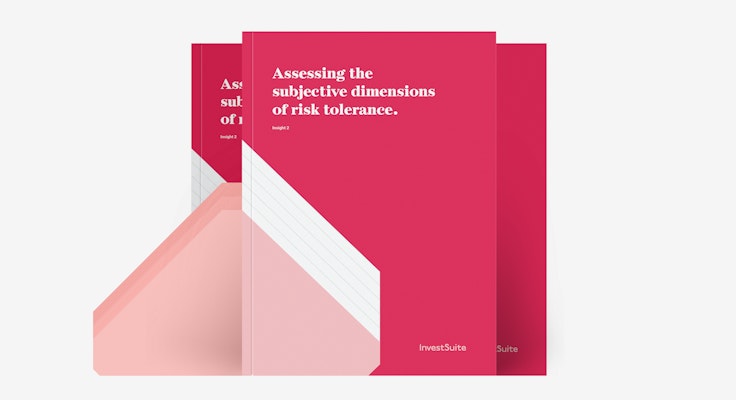The WealthTech sector has been rapidly evolving in 2025, driven by technological advancements, changing client preferences, and increased regulatory pressure. Financial institutions are embracing these changes by implementing cutting-edge digital wealth management tools to stay competitive and meet the growing demand for personalized, efficient solutions. As a WealthTech company at the forefront of these developments, InvestSuite is committed to helping financial institutions adapt to these trends and future-proof their services.
Let’s dive into the top WealthTech trends to keep an eye on in 2025:
1. Scalable Personalization is the new standard
In 2025, personalized wealth management is no longer a luxury but a necessity. Wealth managers are increasingly turning to AI personalization to provide tailored advice at scale, making it more accessible to a larger pool of investors.
AI-powered tools enable wealth managers to leverage real-time data and predictive analytics, creating tailored investment strategies for clients. This personalization goes beyond just recommendations—it optimizes portfolio performance, deepens client engagement, and builds trust.
The shift towards scalable personalization means that more clients will receive customized strategies, improving their experience and satisfaction with digital wealth management services.
2. Rise of Self-Directed and Digital-First Investing
Self-service platforms are becoming the go-to for investors looking to manage their wealth independently. Neo brokers, portfolio trackers, and robo advisors have gained tremendous popularity as more individuals turn to digital-first investing.
Investors expect mobile-first and intuitive digital experiences that allow them to easily access their portfolios, make adjustments, and receive AI-powered financial planning insights on the go. Digital wealth management platforms must now prioritize user-centric design to keep investors engaged and empowered to make informed decisions.
For WealthTech companies, building and integrating solutions that support these demands will be key to attracting the next generation of investors, particularly millennials and Gen Z, who demand convenience and accessibility at their fingertips.
3. AI and Automation in Wealth Management
AI is reshaping wealth management in unprecedented ways. Generative AI and machine learning are being used to automate administrative tasks, allowing wealth managers to focus on high-value client interactions.
Wealth managers are leveraging AI to enhance portfolio management, automate client reporting, and even assist with client meetings. The use of AI is particularly valuable for client reporting tools, where clients expect real-time, accurate insights about their investments.
The automation of routine tasks is transforming the role of wealth managers, enabling them to dedicate more time to strategic conversations and building client rapport. For B2B wealth management solutions, integrating AI will be crucial for staying competitive and providing superior client service.
4. Modern Infrastructure and APIs
The shift to cloud-native and API-driven platforms is a defining characteristic of WealthTech in 2025. Legacy systems are giving way to more flexible, scalable infrastructure that allows wealth managers to integrate a variety of third-party services quickly and cost-effectively.
APIs enable firms to streamline back-office operations, reduce operational costs, and quickly adapt to new technologies and regulatory requirements. By integrating APIs into their systems, wealth managers can offer enhanced digital wealth management solutions that provide clients with a more efficient and seamless experience.
For WealthTech companies, offering API-based solutions means providing clients with a future-proof platform capable of rapid innovation and adaptation.
5. Regulation, ESG, and Sustainable Investing
As regulatory scrutiny increases, wealth managers must ensure they can meet compliance requirements efficiently while also embracing the growing demand for ESG (Environmental, Social, and Governance) transparency. Investors are becoming more socially conscious, expecting real-time, data-backed insights into how their portfolios align with sustainable investing goals.
The adoption of AI-powered tools to track and report ESG metrics is a crucial development in WealthTech. Financial institutions must ensure they meet both investor expectations and regulatory requirements while offering personalized and ethical investment options.
At InvestSuite, we understand the critical importance of compliance and ESG integration. Our solutions help firms provide clients with transparent, sustainable investment options while ensuring full regulatory compliance.
Navigating the Future of WealthTech
As the WealthTech industry continues to evolve, these trends will shape the way financial institutions engage with clients and provide value through digital wealth management solutions. By embracing scalable personalization, AI-driven automation, and cutting-edge infrastructure, WealthTech companies can ensure they remain at the forefront of innovation in this rapidly changing landscape.
At InvestSuite, we are committed to helping firms navigate these changes and deliver exceptional client experiences. Whether it's providing insights through StoryTeller, optimizing portfolios with Robo Advisor, or offering an app meant to educate and inspire self-directed investors like Self Investor, our goal is to empower wealth managers with the tools they need to succeed in 2025 and beyond.
Contact us today to get started.






